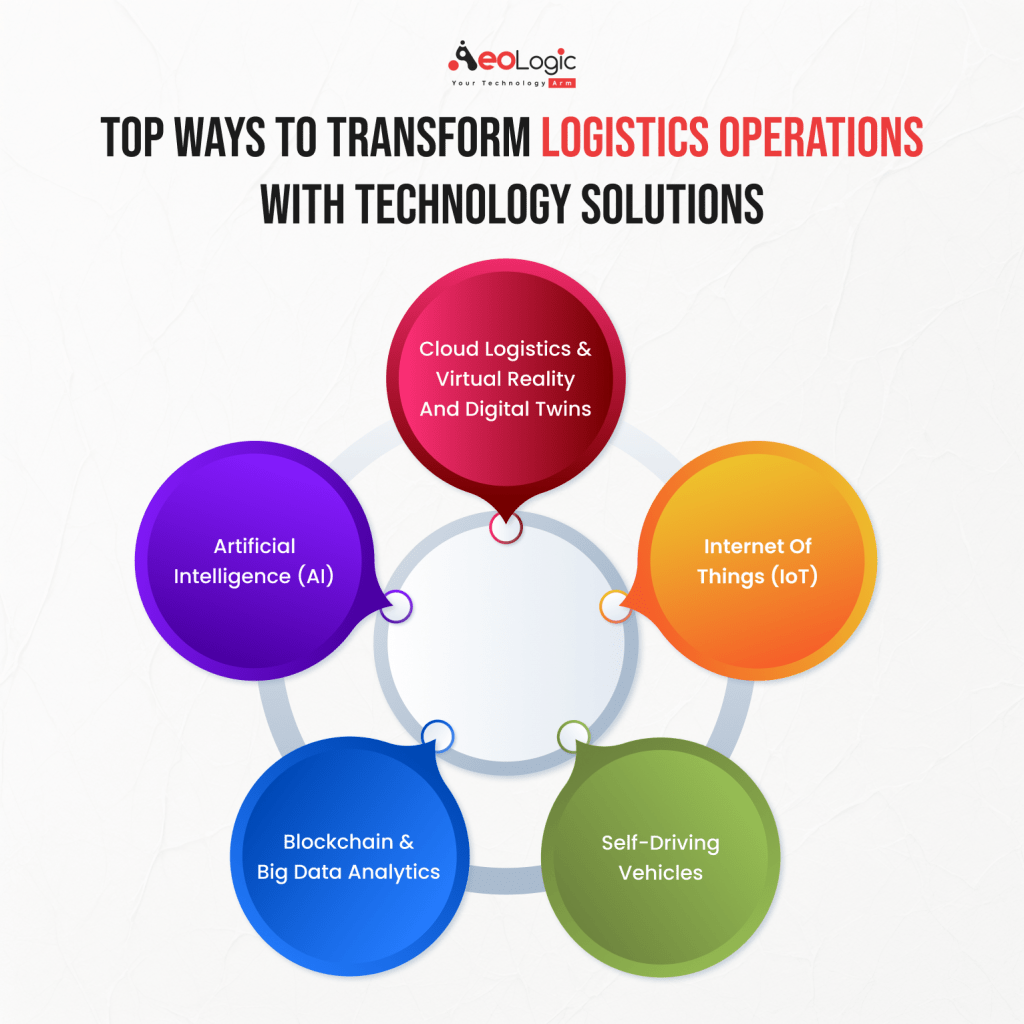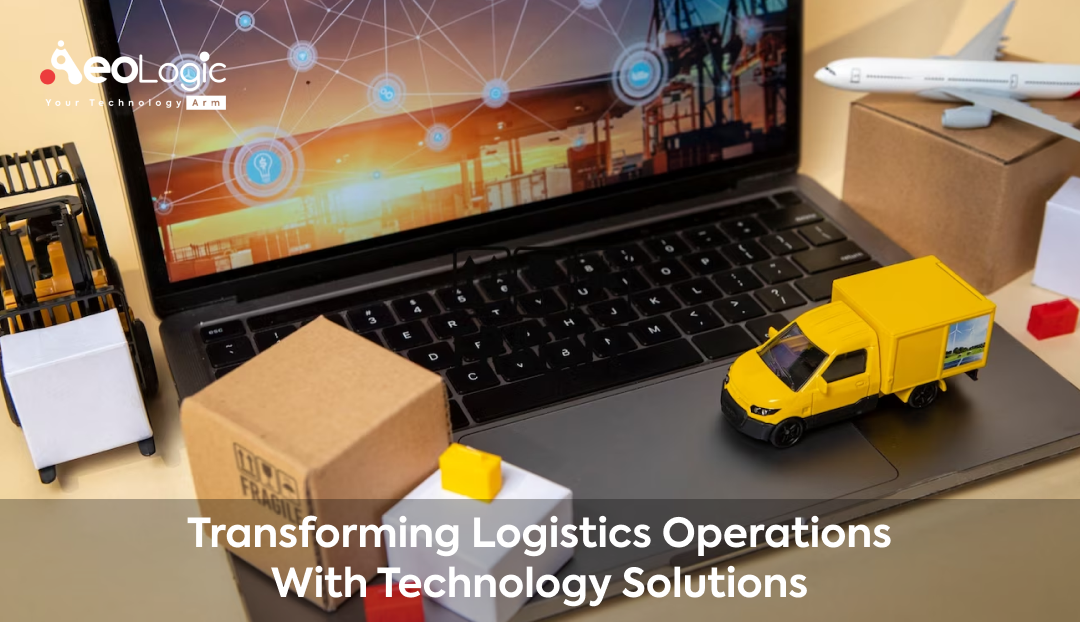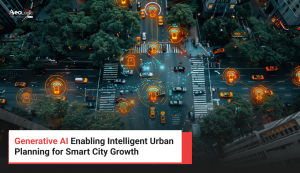The world of logistics is rapidly evolving, thanks to the advancement of technology. In this article, we will explore how technology solutions are transforming logistics operations, making them more efficient, cost-effective, and reliable. By integrating innovative technologies, businesses can significantly enhance their logistics operations.
In recent years, logistics operations have increasingly relied on technology solutions to streamline processes. From tracking shipments in real-time to automating warehouse operations, technology has revolutionized how goods are transported and managed. These advancements not only improve efficiency but also reduce costs and errors, leading to a more reliable logistics network.
Top Ways to Transform Logistics Operations With Technology Solutions

Here are 5 technological innovations that are changing logistics and its management. These trends include self-driving delivery cars and warehouse robots, as well as data insights that save time and money.
1. Cloud Logistics
Cloud logistics takes advantage of cloud computing to simplify the supply chain process. With this technology, companies are able to control their stocks, trace the movement of goods and plan routes from any place at any time. Furthermore, it makes expansion easier to deal with. As soon as operation levels change, storage and computing needs can be scaled up or down. Further, cloud-based platforms can bring together the various parties engaged in logistics operations, further increasing overall efficiency.
Also Read: Benefits of IT Solutions for Logistics Industry
2. Internet of Things (IoT)
The Internet of Things connects physical objects within the logistics network. It is a channel for a 24-hour flow of information. In this way, all links in the supply chain can be seen and controlled. For instance, IoT devices may trace the position of a vehicle, monitor the temperature of perishables during transport, or even anticipate maintenance requirements for logistics gear. Real-time data boost decision-making and operational efficiency.
3. Self-driving vehicles
According to Business Insider, the cost of last-mile delivery in the transportation industry today accounts for 53 % of the total cost. During the next few years, driverless lorries and vans will almost probably start making an impact in a variety of contexts, ranging from long-distance rides to last-mile deliveries. This is because more than forty organizations are continuing rigorous testing of the technology.
Long distances necessitate a high turnover rate of drivers and result in a significant amount of carbon emissions. The use of autonomous technology allows for the partial driving and guiding of cars, which provides drivers with both practical and physiological support during strenuous long distance running. In addition, this will not only apply to vehicles; forklifts, pallet stackers, and other pieces of machinery used in warehouses and construction sites will soon become at least partially autonomous.
4. Blockchain
In logistics, the fact that blockchain can provide secure, transparent, and unchangeable record-keeping makes it especially useful. This forms a reliable Industry-wide log of every item’s movements throughout the supply chain and is essential to the authenticity verification process that helps prevent fake goods. Moreover, blockchain can simplify paperwork procedures like the collection of information needed for import and export trading, making it faster and less error-prone.
Also Read: Benefits of RFID in Supply Chain Management and Logistics
5. Artificial Intelligence (AI)
The applications of AI in logistics go from predictive modeling to route planning and automated customer support. For example, by reviewing patterns in data, companies can use AI algorithms to predict supply line interruptions or changes in demand and plan accordingly. Paste in chatbots and virtual assistants driven by artificial intelligence to answer customers ‘questions instantaneously, tracking all updates.
6. Big data analytics
A deluge of data is being generated by supply chains, and this data is supplying the raw material that may be leveraged to make fundamental adjustments and improvements across networks.
The analysis of this stream of knowledge can yield insights that will not only result in the optimization of operations such as capacity utilization but will also assist in the forecasting and reduction of costs associated with risks, as well as hint to new possibilities of monetizing specific components of a supply chain.
In addition, these insights can be predictive, which enables anticipatory inventory modifications to be made to avoid incurring expenses associated with warehousing and also to move items closer to the markets that require them at the time that they require them.
5. Virtual Reality and Digital Twins
Using virtual reality, complex logistics environments can be simulated for training purposes. Employees get to look at and feel 3D models of warehouses or transportation systems. In contrast, digital twins are virtual substitutes for physical assets or systems. They allow logistics managers to test changes in their operations without disturbing actual processes, facilitating monitoring and diagnostics as well.
Trending Blog: The Benefits of RFID Every Retailer Should Know
Final Word: Logistics Operations With Technology Solutions
Together these technologies are transforming logistics operations into more agile, flexible, and customer-centered systems. As these technologies continue to develop and converge, they represent a logistics landscape that will be completely redefined. These offer profoundly high levels of efficiency coupled with highly customized capabilities.
To find out about how can one apply these revolutionary high-tech products to your transport operations, get in touch with Aeologic Technologies. They are masters at tailoring advanced technology to suit your particular logistics needs.










